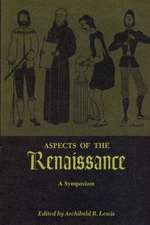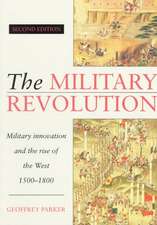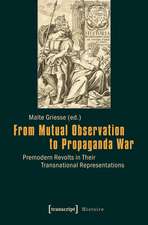Poor Relief and Welfare in Germany from the Reformation to World War I
Autor Larry Frohmanen Limba Engleză Paperback – 2 mar 2011
| Toate formatele și edițiile | Preț | Express |
|---|---|---|
| Paperback (1) | 316.14 lei 6-8 săpt. | |
| Cambridge University Press – 2 mar 2011 | 316.14 lei 6-8 săpt. | |
| Hardback (1) | 448.57 lei 6-8 săpt. | |
| Cambridge University Press – 13 iul 2008 | 448.57 lei 6-8 săpt. |
Preț: 316.14 lei
Nou
Puncte Express: 474
Preț estimativ în valută:
60.51€ • 65.75$ • 50.86£
60.51€ • 65.75$ • 50.86£
Carte tipărită la comandă
Livrare economică 21 aprilie-05 mai
Preluare comenzi: 021 569.72.76
Specificații
ISBN-13: 9780521188852
ISBN-10: 0521188857
Pagini: 268
Dimensiuni: 156 x 234 x 14 mm
Greutate: 0.38 kg
Editura: Cambridge University Press
Colecția Cambridge University Press
Locul publicării:New York, United States
ISBN-10: 0521188857
Pagini: 268
Dimensiuni: 156 x 234 x 14 mm
Greutate: 0.38 kg
Editura: Cambridge University Press
Colecția Cambridge University Press
Locul publicării:New York, United States
Cuprins
1. Discipline, community, and the 16th-century origins of modern poor relief; 2. The rise and fall of the workhouse: poor relief and social policy in the age of absolutism; 3. Pauperism, moral reform, and visions of civil society, 1800–1870; 4. The state, the market, and the regulation of poor relief, 1830–1870; 5. The assistantial double helix: poor relief, social insurance, and the political economy of poor relief, 1830–1870; 6. New voices: citizenship, social reform, and the origins of modern social work in Imperial Germany; 7. The social perspective on need and the origins of modern social welfare; 8. From fault to risk: changing strategies of assistance to the jobless in Imperial Germany; 9. Youth welfare and the political alchemy of juvenile justice; 10. The social evolution of poor relief, the crisis of voluntarism, and the limits of progressive social reform; 11. Family, gender, and (dis)order on the home front in World War I; 12. Wartime youth welfare and the progressive refiguring of the social contract.
Recenzii
“This important work provides the first comprehensive history of German social policy from the early modern era until the First World War. A well-organized narrative that surveys all of Germany's many regions shows how charitable and religious approaches to poor relief evolved into Europe's most advanced welfare-state system. The author presents this complex process neither negatively as the repression of the lower classes nor over-optimistically as progress toward perfect social justice, but rather as a flawed but often well-intentioned attempt to integrate the poor into cities, communities, and the national state. This book will certainly become a standard work in its field, and it provides an indispensable basis for future research.” -Ann Taylor Allen, University of Louisville
“This book is an impressive synthesis. Drawing on archival, published, and secondary sources, Frohman presents a coherent and compelling account of the evolution of poor relief and welfare in Germany in the modern period. Frohman's analysis integrates cultural, institutional, and political history, local and national history, and offers a nuanced, thoughtful, and persuasive perspective on competing interpretive and theoretical frameworks. This book will be obligatory reading and a valuable resource for everyone interested in the history of the welfare state in Central Europe.” -Edward Ross Dickinson, University of California at Davis
“For the first time we have an authoritative general history of the treatment of the poor in Germany between the early modern era and the early twentieth century. Larry Frohman navigates expertly between those ‘whiggish’ readings of social policy that emphasize improvement, social integration, and the supports needed for productive citizenship and the darker story of social discipline, biopolitics, and the rationalizing drives of governmentality. His book will appeal not just to German historians, but to historians of social policy and social welfare across national fields and to sociologists and social work specialists too.” -Geoff Eley, Karl Pohrt Distinguished University Professor of Contemporary History, University of Michigan, Ann Arbor
“An ambitious, wide-ranging and intelligent book, successfully combining the history of relief institutions with the history of social theory. There is nothing in English or German that can match it.” -E. P. Hennock, University of Liverpool
“Frohman’s study deepens our understandings of the German welfare state across an impressively long trajectory from the Reformation until the founding of the Weimar Republic. Suggesting a powerful place for poor relief in German solutions to the social question, Frohman offers definitive insights into the history of social citizenship as it emerged in the nineteenth century and as it was transformed by the rise of the nation-state, by liberalism and scientific social reform, and ultimately by the First World War.” - Kathleen Canning, University of Michigan
"Frohman traces the history of institutional responses to poverty from the 16th to the 20th century. The fact that the book is concerned with such a long period of time is one of its major strenghts. Recommended." -Choice
"...an interesting and well-researched book..."
German Studies Review, C . Edmund Clingan, Queensborough Community College, CUNY
"Poor Relief and Welfare in Germany is an exceptionally well-organized narrative that advances relevant arguments illuminating the connections between poor relief, welfare, and modernity across modern Europe and the United States."
Canadian Journal of History, Ian Miller, University College of Dublin
“This book is an impressive synthesis. Drawing on archival, published, and secondary sources, Frohman presents a coherent and compelling account of the evolution of poor relief and welfare in Germany in the modern period. Frohman's analysis integrates cultural, institutional, and political history, local and national history, and offers a nuanced, thoughtful, and persuasive perspective on competing interpretive and theoretical frameworks. This book will be obligatory reading and a valuable resource for everyone interested in the history of the welfare state in Central Europe.” -Edward Ross Dickinson, University of California at Davis
“For the first time we have an authoritative general history of the treatment of the poor in Germany between the early modern era and the early twentieth century. Larry Frohman navigates expertly between those ‘whiggish’ readings of social policy that emphasize improvement, social integration, and the supports needed for productive citizenship and the darker story of social discipline, biopolitics, and the rationalizing drives of governmentality. His book will appeal not just to German historians, but to historians of social policy and social welfare across national fields and to sociologists and social work specialists too.” -Geoff Eley, Karl Pohrt Distinguished University Professor of Contemporary History, University of Michigan, Ann Arbor
“An ambitious, wide-ranging and intelligent book, successfully combining the history of relief institutions with the history of social theory. There is nothing in English or German that can match it.” -E. P. Hennock, University of Liverpool
“Frohman’s study deepens our understandings of the German welfare state across an impressively long trajectory from the Reformation until the founding of the Weimar Republic. Suggesting a powerful place for poor relief in German solutions to the social question, Frohman offers definitive insights into the history of social citizenship as it emerged in the nineteenth century and as it was transformed by the rise of the nation-state, by liberalism and scientific social reform, and ultimately by the First World War.” - Kathleen Canning, University of Michigan
"Frohman traces the history of institutional responses to poverty from the 16th to the 20th century. The fact that the book is concerned with such a long period of time is one of its major strenghts. Recommended." -Choice
"...an interesting and well-researched book..."
German Studies Review, C . Edmund Clingan, Queensborough Community College, CUNY
"Poor Relief and Welfare in Germany is an exceptionally well-organized narrative that advances relevant arguments illuminating the connections between poor relief, welfare, and modernity across modern Europe and the United States."
Canadian Journal of History, Ian Miller, University College of Dublin
Descriere
Frohman analyses poor relief, charity, and social welfare in Germany from the Reformation through World War I.










